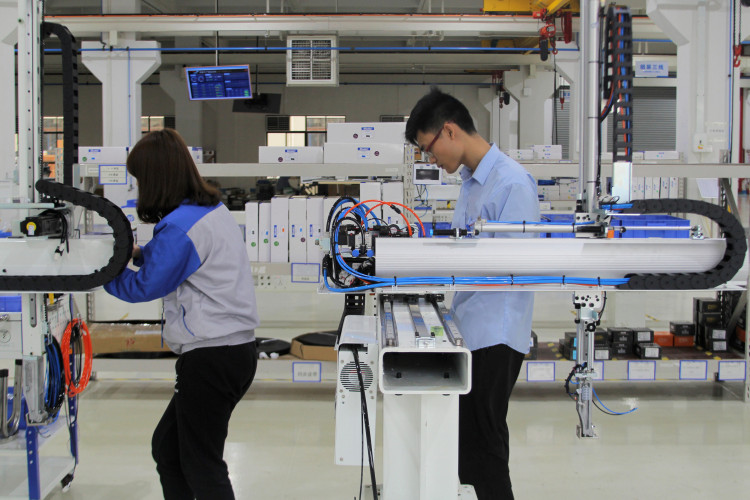China is already leading the technological race internationally but the country is still keen on taking measures to improve its Greater Bay Area's innovation authority through the construction of an international sci-tech and innovation center.
Head of the National Development and Reform Commission, He Lifeng said the innovation center will be constructed between Shenzhen and Hong Kong and will cover an area of 3.89 square kilometers. Xinhua reported that another center will rise between Zhuhai and Macau as part of the initiative.
Improving the Chinese GBA's innovative and technological lead is part of Beijing's bid to spur momentum for President Xi Jinping's Belt & Road Initiative (BRI) that seeks to improve the country's trade relations with other nations.
The Chinese Academy of Sciences is also set to build an innovation research institute in Hong Kong to further push for innovative development in the Guangzhou-Shenzhen-Hong Kong-Macau area.
Before Wednesday's announcement, Macau and Guangdong made a joint statement that said the two regions will increase cooperation in technological projects to boost the goal of turning China's Greater Bay Area into a globally renowned hub.
The Macau government said it will step up efforts in promoting "proper diversification of the economy, to participate in the technological innovation of the GBA, to boost the interconnection of infrastructure and to provide facilities for residents to work and live in the area," Macau Hub reported.
Guangdong and Macau pledged to work on bilateral projects that will propel both economies to a higher level in various industries, particularly within the innovation sector and employment segments.
Hong Kong, for its part, has been helping drive the GBA's technological goals. Last week, HK Financial Secretary Paul Chan announced that Hong Kong will pledge $5 billion for the purpose of encouraging technology and innovation projects in the area.
Chan also said Hong Kong will continue to provide R&D and university grants to talents who want to immerse themselves in technology development. He added that in 2017, almost $15 billion has been released into local information and technology programs. Furthermore, Chan revealed that the Hong Kong Special Administrative Region Government is not backing down on its goal of transforming the Chinese city into a global hub for innovation and technological research.
For his Wednesday entry on 7th Space, Chan said China's Belt & Road Initiative will spur Hong Kong's business opportunities as it will open doors for trade with other countries and local cities. He cited investments from Japanese companies as key drivers in improving tech businesses in the area.





